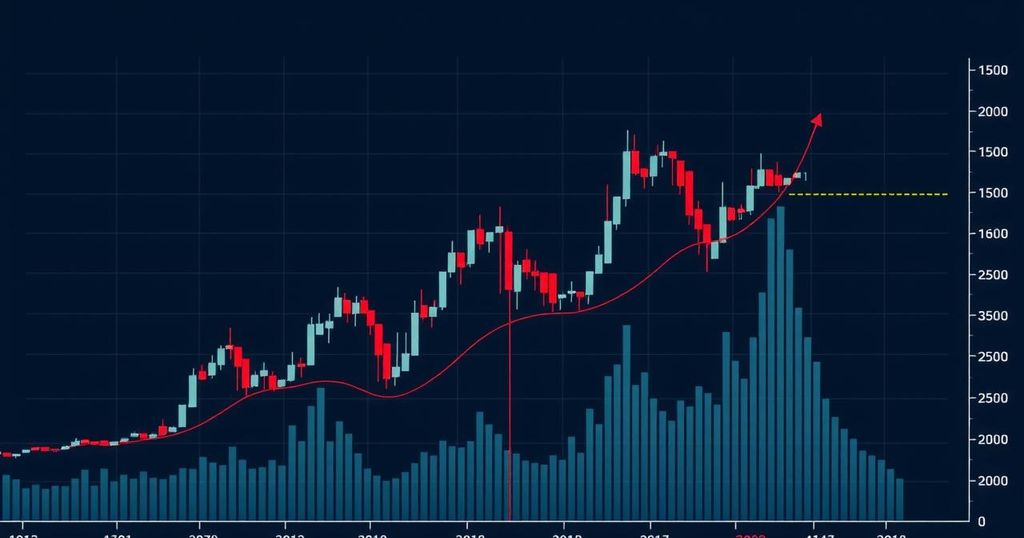BlackRock CEO’s Warning as Bitcoin Faces Substantial Sell-Off
BlackRock CEO Larry Fink concerns over inflation as Bitcoin hits below $80,000. A $1 trillion sell-off in crypto highlights fears of a major market crash. Goldman Sachs raises recession odds due to Trump’s policies, fueling bearish sentiment in financial markets. Upcoming inflation data likely to influence Fed’s rate decisions. Market volatility affects trader strategies, with an eyes on future economic events.
The CEO of BlackRock, Larry Fink, has raised alarms regarding the economic outlook as Bitcoin and other cryptocurrencies experience a massive sell-off, wiping out around $1 trillion from the crypto market in just one month. The price of Bitcoin has plunged to below $80,000, mirroring the declines seen in stock markets, amid concerns that the cryptocurrency is on the brink of a significant crash.
This latest downturn in cryptocurrency values comes as Fink links US President Donald Trump’s trade policies to rising inflation, warning that such nationalistic stances could hinder hopes for interest rate cuts through to 2025. Speaking at the CERAWeek conference, Fink elaborated that these policies could fuel ongoing inflationary pressures, contradicting market expectations for easier monetary conditions.
As of March 13, a report indicated that U.S. inflation had slowed to 2.8% in February, down from January’s 3%, which would typically bolster arguments for rate reductions. However, fears surrounding Trump’s tariffs continue to contribute to inflationary concerns. Youwei Yang, an economist at BIT Mining, pointed out that the latest Consumer Price Index figures are not enough to quell market fears, stating that the aggressive tariff strategies risk persistent inflation and economic instability.
While Bitcoin’s value continues to struggle, Goldman Sachs has also raised the probability of a U.S. recession in the next year from 15% to 20%, attributing this increase to potential repercussions of Trump’s economic measures. Other economists have similarly adjusted their recession estimates higher based on recent economic developments. Federal Reserve Chair Jerome Powell noted that there is no immediate rush to cut rates given the strength of the labour market, although upcoming inflation data will be pivotal for future decisions.
In the crypto arena, there’s a palpable tension as markets remain bearish. Sean Dawson, leading research at Derive.xyz, commented that significant macroeconomic challenges are driving traders towards hedging strategies, particularly as volatility increases across both traditional markets and cryptocurrencies. The weeks ahead are deemed crucial for gauging digital asset performance in light of the faltering economic landscape.
In summary, the instability observed in cryptocurrency markets is inextricably linked to broader economic worries, particularly U.S. recession fears and persistent inflation. Without stronger assurances from economic authorities, market sentiment is unlikely to shift positively in the immediate future.




Post Comment